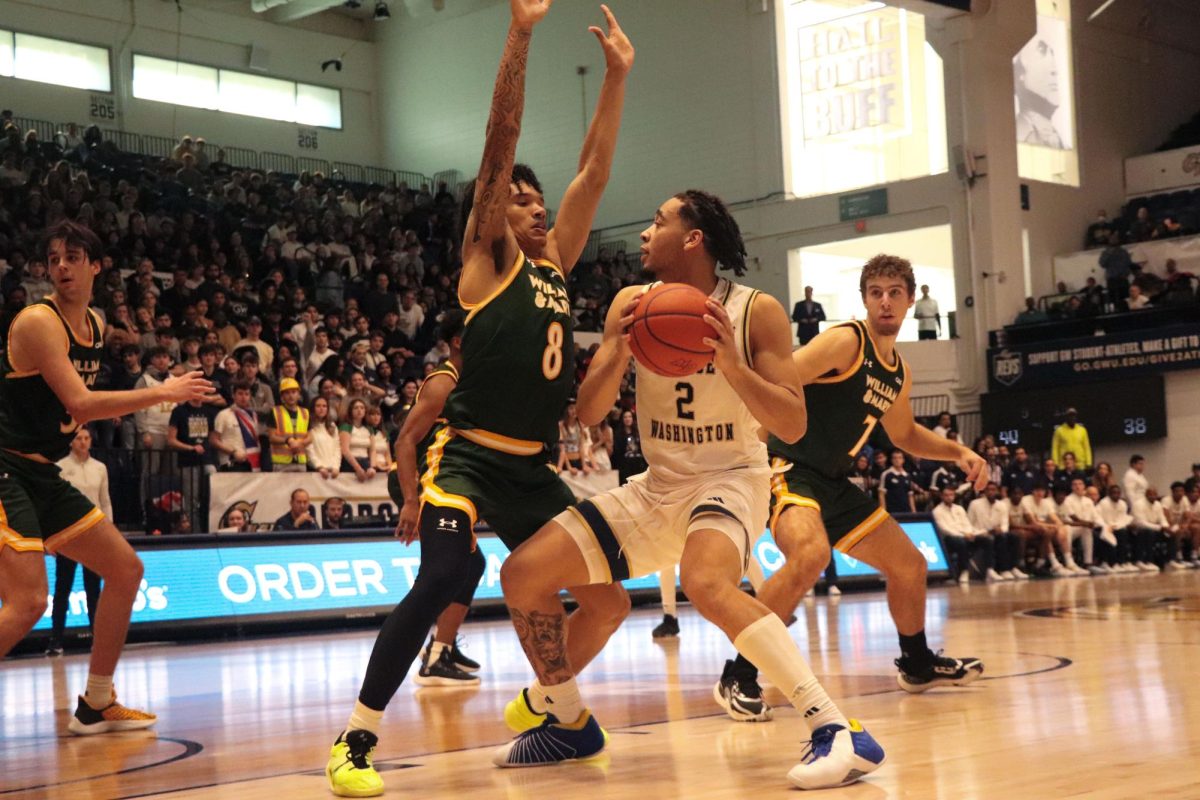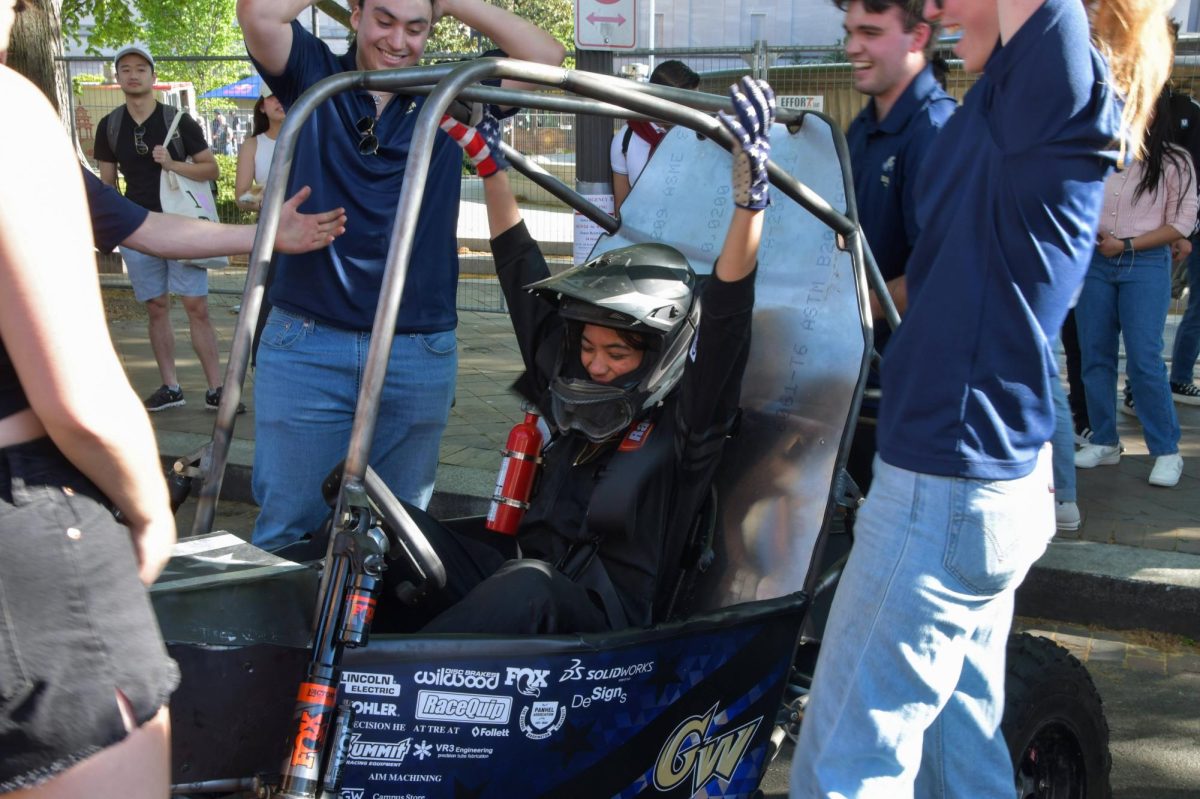Sitting in his first GW Law School class, Craig Calcaterra got a poetic glimpse at his sports writing future.
Packed in a giant lecture hall with hundreds of first-year law students, professor Jonathan Siegel began reading verbatim from a little book: “The Official Rules of Major League Baseball.”
“The legal system is like a sport. It has an arena and it has its rules, and the rules dictate how the sport is played. They are not just formalities, they are inherent and intrinsic to the game itself … such is the case with civil procedure,” Calcaterra recalls Siegel saying.
Eighteen years later and six years removed from practicing law, Calcaterra – the lead blogger for NBC Sports’ HardballTalk – still thinks about his unlikely start at GW.
Calcaterra has already made his mark on the sportswriting industry, winning the 2012 Joe Posnanski Award, given out by the Baseball Bloggers Alliance to the top internet baseball writer of the year.
HardballTalk, “a one-stop shop for everything baseball,” receives several hundred thousand page views a day, with an increase in the fall due to the Major League Baseball postseason.
Sports editor Nick Ong talked with Calcaterra about his transition from the legal system to sports journalism, and some of the topics he has covered along the way. The interview has been edited for length.
Hatchet: When did you start to realize that the legal world wasn’t the place for you?
Calcaterra: It was funny, it coincided with a very major criminal defense case that consumed about a year and a half of my life. It was kind of a disillusioning experience, having a case that was so overwhelming. But after, I had a month of very low workload, and in that month, I just realized I needed to do something that was more positive and less exhausting.
So I just fired up a blogspot blog and I started writing little blogspots about baseball – just for myself. And I started doing that in the spring of 2007 and every morning it just gave me an outlet of something positive to do. And no one read it for three or four months, but then people started reading it.
Hatchet: Why did you choose to write about baseball?
Calcaterra: I’m not one of those kids whose parents handed them a baseball. My dad wasn’t a sports fan, it wasn’t one of those stories of my dad and I playing catch and all that. In fact, sports were kind of a weird thing for him. My brother and I got into baseball cards when I was really young. I’m not sure how it happened, but we just stumbled upon a bunch of baseball cards when I was six years old. We just thought they were neat, and then we realized, ‘Oh wait, there are baseball games, they exist, and they’re on TV. Okay, well, we’ll watch some baseball games.’
Hatchet: Has your background as a lawyer helped you or given you an advantage in journalism, especially with issues like steroid cases?
Calcaterra: It’s absolutely true that I wouldn’t be doing what I am now if I didn’t have the legal background, and the reason for that is when my blog started getting popular and people started reading it, it was because I was writing about issues from the legal perspective.
And there were a lot of legal issues floating around the game, mostly steroids at the time – the Mitchell Report on steroids in baseball came out in 2007, I believe. And I gave that a very close reading like I would in any legal research project – scrutinizing the findings.
These were things that were completely foreign to baseball people and I was able to give it that sort of insight, and even up until now, I still am able to do that whenever there’s a matter that comes up that is legal, which in baseball is quite a bit.
I decidedly resist trying to become a journalist, or a person in the media. When people ask me about myself, I’ll usually still say I’m a lawyer. I’m still admitted in the bar and all that, and I think of it that way, because the one thing that I took away from my litigation career, and it goes all the way back to my time at GW, is always, “Think critically.” In hindsight, it was the best possible education I could have gotten, both for my legal career and for what I’m doing now in writing.
Hatchet: What do you say to those writers who say that baseball is losing its place among the top three sports?
Calcaterra: I think it’s a complicated subject, certainly, because what baseball is compared to is what baseball once was. There are any number of things to compete for the national entertainment dollar and attention span with baseball now, so of course when you compare it to what it used to be, it’s going to look horrible, because nothing can be what baseball used to be.
That said, baseball on it’s own merits now is an extraordinarily healthy game. Baseball, though, isn’t a national sport, and that’s something that’s really been lost on people. Baseball is an assemblage of 30 local sports. Baseball is a local market game, and in the local markets those are huge properties with gigantic ratings and extremely lucrative profit streams because it is a product consumed on the local level 140 to 150 times a year.
Hatchet: There’s been a lot in the press recently about NCAA regulations and players taking bribes from schools or boosters. Do you think the NCAA needs to makes changes in this area?
Calcaterra: I used to always think of it that way – it was an exchange, right? You get a scholarship, and you’re an amateur, and “Rah, rah, school.” But the last couple of years, I have definitely taken a couple of steps back from that and have realized just how big a business college sports are.
I think it’s borderline criminal, the sort of restrictions and scrutiny that are put on these kids just so the universities and everyone else can continue to make the money that they make. These kids are multi-million dollar properties. If any old Heisman trophy candidate wanted to and was able to sell jerseys with his number on it or his autograph, he’d be a millionaire, but they’re not allowed to, only other people are allowed to. I just think it’s a joke.







